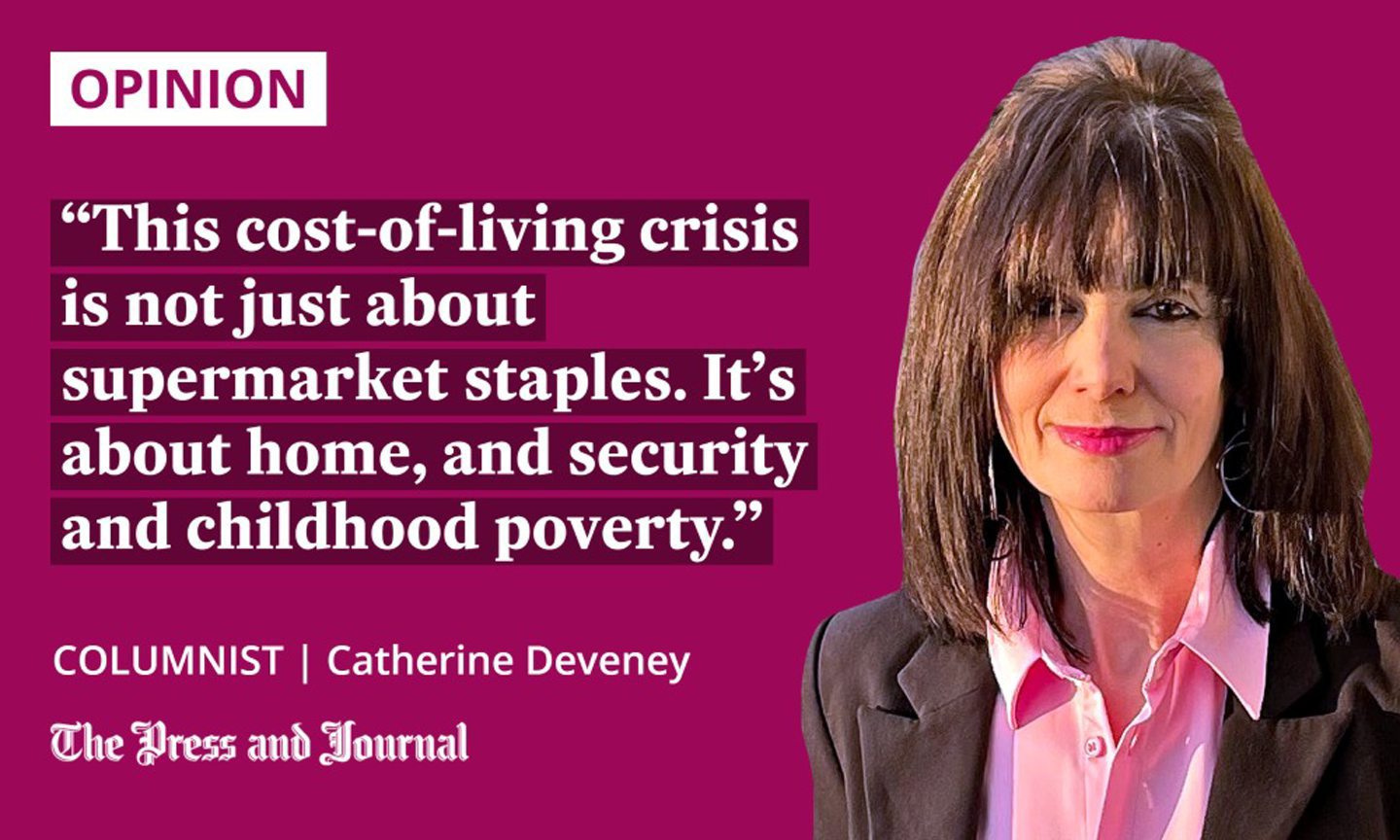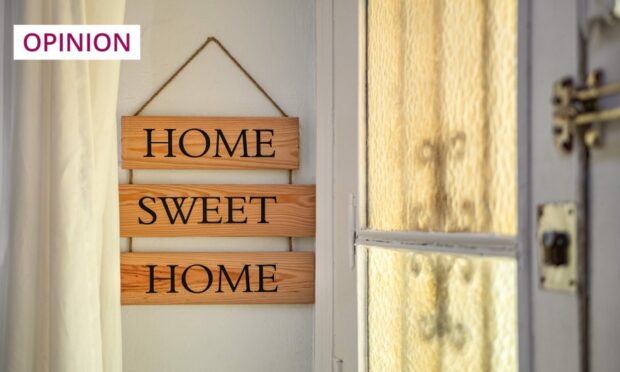The rose bushes were gone. In the baking city heat, scraggy tufts of scorched grass sprawled through concrete where the lawn had once been.
The circular, central flower bed had disappeared, while thick bushes fingered their way across the bay windows. The auction sign pointed the way, but it was unnecessary: the house in a leafy Glasgow council estate screamed its plight between its pristine, now privately owned, neighbours.
For a moment, I could see my father again, the reluctant gardener, sweat beading his forehead as he weeded the strip of rose bushes that ran the full length of the garden. Creamy vanilla; delicate pink; fiery orange; petals of dreamiest velvet. Now it was a wilderness.
The visit had seemed irresistible. Stumbled upon purely by chance online, the auction details for my old childhood home included a half-hour open viewing period the very next day. How could I not? Standing in that house again was the closest I would get to time travel.
I have always been fascinated by old houses and old lives. The scraps of tired wallpaper that cling to crumbling plasterboard; the discarded fragments of times past; the sense inside those silent walls of a life suddenly halted, like a stopped clock. I just never imagined seeing my own life that way.

But it wasn’t just my life. Dumped at the side of the house was the sad detritus of another family: an old mattress; rain-damaged wedding photographs; pictures of smiling children; old toys and bags of clothes. It’s a sight that will become more common, with yet another mortgage rise this week and increasing economic pressure in every direction.
By the end of 2024, the fixed mortgage rate of 2.4 million homeowners will expire, leaving average increases of £2,900 a year on top of increased food and energy bills. Even those living in palaces understand the crisis: Prince William gave his first ever newspaper interview this week to discuss homelessness.
Yet, the government, which bailed out businesses during Covid, refused to act, despite the people’s financial champion, Martin Lewis, warning them last year of the “ticking mortgage time bomb”. It has exploded, Lewis said this week, but there is still no mortgage relief, no bail out for families.
Already, last month, around 700,000 UK households missed or defaulted on a rent or mortgage payment. The month before, according to consumer watchdog Which?, around two million households missed or defaulted on at least one bill.
This cost-of-living crisis is not just about supermarket staples. It’s about home, and security and childhood poverty.
What is left for the families who came after?
Inside my old house, the changes in modern housing expectations were obvious. Eight people once lived here, a house with two modest sized bedrooms and one tiny box room. The old dining room, now a prayer room, had a fold-down sofa back then. There were no en suite bedrooms or kitchen diners.
But, in one important way, housing expectations are what they always were, in every period and culture. In the downstairs hall, the word “home” had been stencilled on the wall: a sad, uneasy homage to an idealised vision of familial security.
A woman wandered by. “Overpriced,” she muttered. But most viewers were men who hunted in twos – business sharks, stepping over the mouse droppings and rat poison, looking for a buck from lives lost. Time does not wait to soothe misery.
I didn’t need to close my eyes to see my mother’s chair behind me, my father’s next to it, a Hornel painting of three little girls on the wall. It reminded my father, he said, of his own three girls.
The sharks swam past with their calculators. “Get out of my house,” I wanted to say, Peggy Mitchell style. But it wasn’t mine anymore.
It wasn’t even Glasgow City Council’s anymore. The council there no longer owns any housing stock. Thatcher’s “right to buy” gave a generation of families the opportunity to own property, but those houses were not replaced for the families who came after.
Taxes remain, but public services don’t
The picture now seems bleaker than ever. Mortgage rates are crippling; private rents are sky high. Taxes remain, but public services – like council housing – don’t.
Meanwhile, the human devastation of homelessness is obvious on our city streets. The pandemic proved that homeless people could be given shelter. Then, it was for the sake of society. Now, it should be for the sake of the homeless. A home is a human right.
That traditional sense of home, the place where everything is safe and secure, is being taken from too many families
That traditional sense of home, the place where everything is safe and secure, is being taken from too many families. Standing in that house evoked so many losses, both personal and societal: a family now depleted, but also the disappearance of so many old, important societal structures. We need new ones to take their place.
At the bottom of the garden, a new plant replaced the roses. Tiny, poignant little forget-me-nots grew where they never had before, straggling out of the wilderness towards the sun.
Catherine Deveney is an award-winning investigative journalist, novelist and television presenter












Conversation